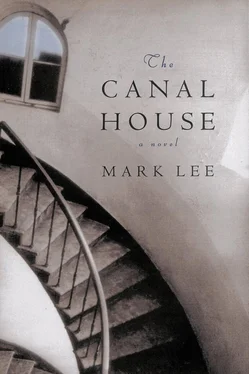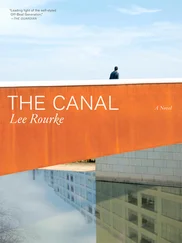All I know is Captain Jenkins showed up at my hotel room five days later looking like he’d been sleeping in the jungle. He opened an envelope and dumped out Daniel’s wristwatch and passport.
“We also found your friend’s shoes, but they were covered with blood. I dug a hole and buried them.”
“Thank you, Captain.”
“The suspects died resisting capture, but we managed to interrogate one of them before he bled to death. You know what that little bastard bragged about? He’d raped nine women.”
According to Jenkins, the militiamen had waited near the wharf for a transport ship to appear. Daniel talked to a few of them and took a nap in the shade of a banyan tree. When the ship didn’t arrive by sunset, Cristiano became worried about a counterattack and told Daniel they were going to hide. A large plane with lights on its wings passed over the town as they were walking past the mercado . It was probably one of the C-130 transports returning to Darwin, but Cristiano assumed that the plane was carrying paratroopers who were going to land in the darkness and capture them. He ordered Daniel to stand beside the drainage ditch and told his followers to shoot. It was over in a few seconds.
LATER I HEARD a different story about Daniel’s murder when Sister Xavier wrote me from East Timor. In her version the transport plane passed over Liquica and Cristiano become frightened. He told his men to take Daniel over to the ruined marketplace. Daniel looked calm when he was ordered to stand beside the ditch and the improvised firing squad became nervous. They whispered among themselves that this killing was bad luck and it would cause them to be punished by the island spirits. The men lowered their weapons and Daniel extended the palm of his right hand, as if he was offering them a gift. Furious, Cristiano grabbed a rifle and fired the entire clip.
“THIS STORY’S OVER,” announced a British reporter in the hotel hallway. The foreign journalists were sending out their final sum-it-all-up articles, then flying home. Julia was gone, Daniel was buried, and I still remained. I felt like one of those windup toys that marches across the living room floor and hits a wall.
The wet season was only a few weeks away and the air felt stagnant and heavy with moisture. Interfet command had transferred out to the airport and I moved over to the Turismo Hotel. Water began to dribble out of the faucets. It was enough to take a shower, but you had to keep your mouth shut because of typhoid. The UN shipped in four electric generators and power flowed through the city. I touched a switch in my hotel room and a lightbulb went on. The ceiling fan above me squeaked and shivered, then spun around with an awkward, wobbling motion as if the wooden blades might break off. I stayed up late that night and woke up when a soldier knocked on the door.
“Mr. Bettencourt? I’m sorry to bother you.” It took me a few seconds to recognize the young Australian lieutenant who had taken me down to Liquica.
“What’s the problem?”
“We’re cracking down on people selling stolen property. This morning we found this old Indonesian selling a lot of expensive medicine down by the harbor. We told him to hand it over, but he was as mad as a cut snake. He said you gave it to him.”
I leaned against the door. “I don’t know what you’re talking about.”
The lieutenant swallowed and looked embarrassed. “He’s a bad-tempered old man. He just said ‘Nicky, Mr. Nicky.’ Then he pretended to shoot a camera.”
I pulled on my socks and shoes, then grabbed my camera bag. “All right. I’ll talk to him. Let’s go.”
We got into a Land Rover and drove through the city. More Timorese had come down from the hills in the last few days and they drifted around the city staring at the destruction. None of the burned-out buildings were being rebuilt, but women had started to sweep up the ashes with homemade brooms.
Out at the Interfet camp, the Australians had built a jail using an empty cargo container and a chain-link fence covered with razor wire. Two young militiamen sat beside the open container and drank from water bottles. They looked like schoolboys picked up for throwing rocks. Pak squatted near the fence and guarded a cardboard box filled with antibiotics and chloramphenicol tablets. Globs of red spit were splattered on the dirt in front of him. Pak reached into his leather bag to get some more betel nut, then grinned when he saw me. The guard let him out of the cage and we shook hands.
“Morning, Pak. What’s going on?”
“Hello, Mr. Nicky.” The old man glared at the Australians and gestured to the box of medicine. “Small trouble. They no believe me.”
I crouched down and the lieutenant left us alone. “What don’t they believe?”
“You and Mr. Billy are good friends.”
“Not exactly friends. What does that have to do with the medicine?”
He nodded at the box. “Pak did what Mr. Billy said. This is what you pay me.”
I felt as if I’d been carrying my camera all day long, dealing with bad light and missed opportunities. Suddenly the world had rearranged itself and if I took one step, just one more step around a corner, the right image would appear. Look away, I thought. Act like you don’t care. I scratched a mosquito bite on my arm as if it was the most interesting problem in my life.
“Yeah. I was wondering about what happened. Did someone help you?”
“No! It was just me!” Pak made a fist and tapped his bony rib cage. “When the Seria goes out of the harbor, Mr. Billy comes down and tells me. ‘Break the engine.’”
“Right, and then there was an explosion.”
“No explosion. That was me. I take a beer bottle, fill it with petrol, and attach a rag. I set it on fire and bang!” He slapped his leg with the palm of his hand. “It looked very bad.”
I smiled as if I was pleased. “And you told us that the fuel line had burst.”
“Yes. That was easy to do. Mr. Billy was happy. Captain Vanderhouten get the money. I get the medicine.”
I wanted to make Pak repeat his statement in front of witnesses, but I knew that the old man would sense trouble and deny everything. Even if a police force and a judicial system had existed in Dili, no one would have arrested Pak and prosecuted him for a crime. Pak hadn’t killed anyone. He was the first mate on a ship. Everyone knew that the militia had murdered Daniel McFarland.
I pulled out my camera and took the old man’s picture. He gave me a black-toothed smile as if we were fellow conspirators, then I stood up and walked over to the lieutenant.
“So you know him?”
“Of course. Thank you for your help, Lieutenant.” I turned away from him and headed back to the road.
“But what about the medicine? Do we confiscate what’s in the box?”
“No,” I said. “He earned it.”
I boarded the planeto England filled with rage and elaborate plans of revenge. I would hold a news conference, demand that Richard be prosecuted. Perhaps I’d write a defamatory article and force him to sue me. Most of my fantasies involved courtrooms and barristers and people pointing fingers at each other. Of course, it was all nonsense. By the time the plane passed over Pakistan and Central Asia, I realized that I had no options at all.
I couldn’t hurt Richard or demand his arrest; he was too wealthy and influential, protected by lawyers and his political friends. East Timor was a long way from Britain and it would be difficult to prove Richard’s involvement in what had happened. Even if I could have figured out some kind of legal strategy, I didn’t have the confidence to push it forward. Daniel would have known what to do, but now I was on my own.
Читать дальше












